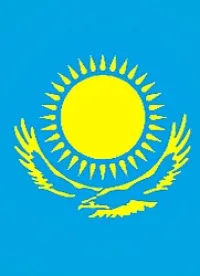In a case that highlights both that governments are not above the rule of law and that it is difficult to swiftly enforce arbitral awards, a Swedish appeals court, on December 12, 2016, upheld a $506 million award against Kazakhstan. The award stems from Kazakhstan’s 2008 seizure of the oil and gas investments of two Moldovan businessmen. The Swedish appeals court refused to allow Kazakhstan to further appeal the award and also ordered the country to pay attorney’s fees in excess of $3 million.
The Moldovan businessmen, Anatolie and Gabriel Stati, along with their respective companies, Ascom Group SA and Terra Raf Trans, claim that they invested more than $1 billion in Kazakhstan’s energy sector only to have the Kazakh government coerce the sale of their profitable investments. The Statis allege that when their energy investments became profitable, the Kazakh government used criminal prosecution and colossal tax penalties to provide a legal gloss to what was effectively a forced sale.
The Swedish appeals court rejected Kazakhstan’s position regarding the initial decision of the Swedish arbitration tribunal in 2011, determining that the award was fair under the governing terms of the Energy Charter Treaty. The Treaty is a legally binding international agreement that established a framework for international cooperation in the energy industry. Articles 26 and 27 of the Treaty contain dispute resolution procedures, including the Arbitration Rules of the Stockholm Chamber of Commerce, which were utilized in this matter.
Kazakhstan alleged that, under the terms of the Treaty, it was unjustly denied the opportunity to appoint an arbitrator to the Swedish tribunal. Kazakhstan also argued that the Statis and their associated companies inflated the value of their investments and that the arbitration violated the terms of the Treaty. While the three-judge panel on the Swedish appeals court drilled deep into Kazakhstan’s allegations, it ultimately dismissed all three arguments.
Although Kazakhstan may choose to pay the arbitral award without further litigation, realistically, both parties’ legal teams should expect to continue to burn the midnight oil. Despite the Swedish appeals court’s ruling, the monetary pipeline from the Kazakh government to the Statis will almost certainly not begin to flow unless the U.S. District Court for the District of Columbia also upholds the award.
On September 30, 2014, the Statis filed a petition in D.C. federal court to confirm the Swedish arbitral award. However, on August 5, 2016, Judge Amy Jackson Berman stayed the case. Judge Jackson held that while the court has jurisdiction over the dispute, it would stay the case until after the Swedish appeals court’s decision, which would have a “dramatic impact” on the matter.
Now that the Swedish appeals court has rendered its opinion, it is up to the Statis to decide whether to continue their case in D.C. federal court. Without another favorable ruling, the Moldovan businessmen will likely have trouble turning their investments in black gold into a monetary wellspring.


 />i
/>i

